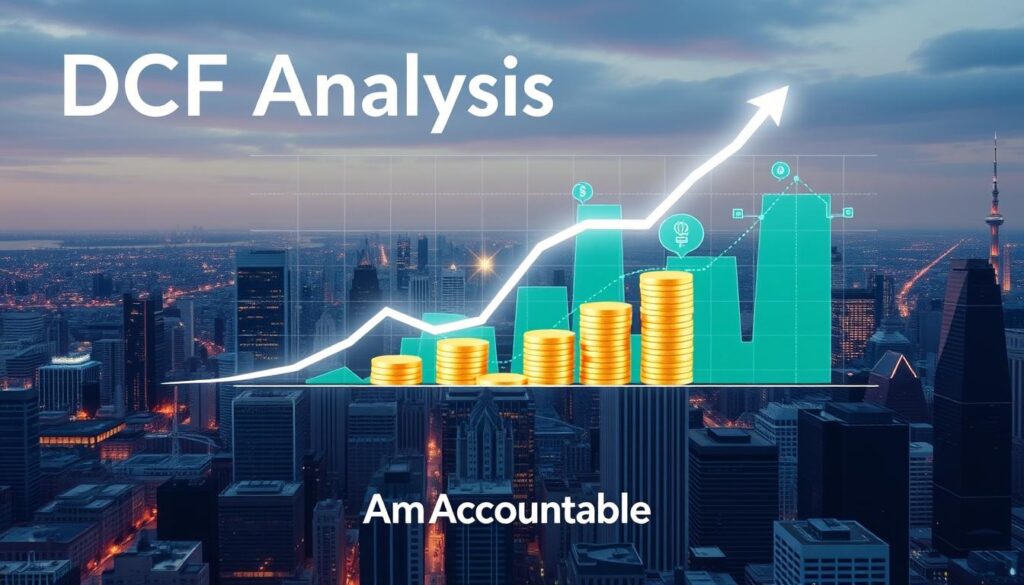Hyderabad , India
Ever thought about your startup’s true value? Figuring out the business valuation of a young company is tough. For founders in India, knowing your startup’s worth is key for investments and future plans.
In this guide, we’ll look at Business Valuation, Asset Valuation, and Company Appraisal. We’ll cover the challenges, why it matters, and what to consider in India’s market. We’ll discuss Enterprise Value, Fair Market Value, Intrinsic Value, and Market Capitalization. You’ll learn how to find your startup’s real Business Worth and Equity Value.
But, how do you really value your startup in today’s fast-changing market? Let’s dive into Discounted Cash Flow Analysis and other methods. We’ll give you the tools to make smart choices for your startup’s future.
Key Takeaways
- Understand the key factors that drive startup valuations, including financial metrics, management capabilities, and market potential.
- Explore the different valuation methods used for startups at various stages, from the cost-to-duplicate approach to the discounted cash flow (DCF) analysis.
- Learn how to prepare for investor discussions and create perceived demand for your startup’s worth.
- Recognize the importance of accurate business valuation in securing investments and planning for your startup’s growth.
- Discover common pitfalls to avoid when determining your startup’s worth, such as biased projections and faulty comparisons.
Understanding Business Valuation for Startups
Startup valuation is key for entrepreneurs. It shows how well a company can grow and meet goals with new money. But, valuing startups is hard because they often don’t have past financial data. They also face uncertain futures and don’t have similar companies to compare to.
Challenges in Valuing Start-Up Ventures
One big problem is the lack of financial history. Startups, especially those without revenue, don’t have the usual data to judge their success. This makes it hard for investors and analysts to see the startup’s real potential.
Another challenge is guessing a startup’s future growth. Markets and business models change fast, making it hard to predict success. Investor views and market conditions also affect a startup’s value, leading to changing valuations.
It’s also hard to compare startups. Each has its own technology, strategy, or business model. There’s no clear standard to compare them against.
Startups often need many funding rounds, making valuation even harder. As a startup grows, its value can change based on investor opinions and market trends. This makes it tough to keep a steady and accurate view of the company’s worth.
Valuing startups is also subjective. It depends on assumptions, market trends, and what investors think. This makes it hard to agree on a single value for a startup.
To tackle these issues, founders and investors use different valuation methods. These include the cost-to-duplicate approach, market multiple approach, and discounted cash flow (DCF) analysis. Each has its own strengths and weaknesses. The right method depends on the startup’s stage and the data available.
Importance of Accurate Business Valuation
Finding out a startup’s value is key to success. At Am Accountable, we offer virtual accounting services for startups in India. Our approach lets you create a virtual accounting team in 24 hours. This saves time, cuts costs, and boosts efficiency with our expert services.
An accurate business valuation gives startups crucial insights. These insights can greatly affect their growth and development. Here’s why Startup Fundraising, Investor Discussions, Strategic Planning, and Resource Allocation depend on knowing your startup’s value:
- Getting the right amount of Startup Fundraising: Knowing your value helps you raise the right capital. It also lets you offer the right ownership stakes to Investor Discussions.
- Smart Strategic Planning: Accurate valuations show a company’s financial health and growth chances. They guide strategic decisions and goal-setting.
- Smart Resource Allocation: Proper valuation helps startups decide how to use their resources best. This leads to better efficiency and profits.
In India’s fast-paced startup world, knowing your business value is key. It attracts the right investors and gets you the funding you need to grow. At Am Accountable, we help our clients tackle the challenges of startup valuation. We aim to help them succeed in the market.
“A business valuation can serve as a starting point in strategic growth planning and provide visibility for long-term considerations, aiding in higher business growth, terminal values, and selling prices over time.”
By working with us, startups in India can reach their full potential. They can set themselves up for long-term success. Contact us today to see how our virtual accounting services can change your startup’s future.
Business Valuation Methods for Startups
As entrepreneurs, we face the challenge of figuring out our startup’s worth. Luckily, there are Startup Valuation Methods to help us get it right. Let’s dive into some key methods that show our business’s true value.
Cost-to-Duplicate Approach
The Cost-to-Duplicate Approach is a smart way to value a startup. It looks at how much it would cost to start the business again, without the intangible stuff like brand. By adding up all the costs, we can find out what our startup is really worth.
Market Multiple Approach
The Market Multiple Approach is another useful tool. It uses recent deals in our field to figure out a market multiple. Then, we apply it to our startup’s financials to find its fair value.
Discounted Cash Flow (DCF) Analysis
The Discounted Cash Flow (DCF) Analysis is a common method. It looks at our startup’s future cash flow, uses a high discount rate for risk, and then discounts it to today’s value. This shows our business’s true worth by looking at its future growth.
Valuation by Stage
The Valuation by Stage method considers where our startup is in its journey. It looks at the challenges and milestones of each stage. This helps us find the right value for our startup at its current stage.
By using these Startup Valuation Methods, we can get ready for talks with investors. At Am Accountable, we offer virtual accounting services for startups in India. We help you understand business valuation. Call us at 91 91778 42756 to see how we can help your startup grow.
| Valuation Method | Key Characteristics |
|---|---|
| Cost-to-Duplicate Approach | Estimates the cost of recreating the business, excluding intangible assets |
| Market Multiple Approach | Uses recent industry transactions to calculate a market multiple |
| Discounted Cash Flow (DCF) Analysis | Projects future cash flows, applies a high discount rate, and discounts to present value |
| Valuation by Stage | Considers the startup’s specific phase of development |
“Determining the right valuation for a startup is crucial in attracting the right investors and setting the stage for future growth.”
Cost-to-Duplicate Approach
At Am Accountable, we offer virtual accounting services for startups in India. You can build your virtual accounting team in just 24 hours. Our services save time, cut costs, and boost efficiency.
The Cost-to-Duplicate Approach calculates the costs for a competitor to start from scratch. It looks at the fair market value of tangible assets. This includes physical assets, development costs, and more.
This method gives a clear view of a startup’s worth. But, it misses the value of intangible assets. These are things like brand recognition and customer relationships.
Advantages of the Cost-to-Duplicate Approach
- It’s easy to understand and communicate, great for early-stage startups.
- Uses real data for a realistic and conservative valuation.
- It makes it hard for others to copy, encouraging innovation.
- It helps protect against competition by showing the costs to replicate.
- It drives network effects and profits by making duplication hard.
Disadvantages of the Cost-to-Duplicate Approach
- It doesn’t value intangible assets like brand and future growth.
- It underestimates businesses with strong network effects.
- It only looks at past costs, not future earnings.
- It might not fully capture the labor costs of replication.
- It doesn’t account for competitor responses like price wars.
The Cost-to-Duplicate Approach is good for Indian startups. It helps quantify innovative product value and aids investors. It also considers the high costs of duplication in India. By adjusting for market factors, it helps startups in the Indian market.
Market Multiple Approach
The Market Multiple Approach is a useful tool for valuing startups. It compares the startup’s financials to those of similar companies. This helps determine an Acquisition Valuation that fits Industry Benchmarks.
Finding similar startups can be hard, especially in fast-changing markets like India. To get an accurate Acquisition Valuation, we must adjust for differences in development and growth.
Some key valuation multiples include:
- Enterprise Value (EV) / EBITDA – Compares a company’s value to its earnings before interest, taxes, and more.
- EV / Revenue – Shows a company’s value compared to its total revenue.
- Price-to-Earnings (P/E) Ratio – Compares a company’s stock price to its earnings per share.
By looking at these Revenue Multiples, we can understand the startup’s Acquisition Valuation. This helps us see how it compares to Industry Benchmarks.
“The multiples approach provides a simple method for analyzing and comparing companies within an industry, making it a valuable tool in the startup valuation process.”
While the Market Multiple Approach is useful, it has its limits. Finding data, comparing within industries, and predicting future performance can be tricky. We must weigh these factors to get a fair Acquisition Valuation.
At Am Accountable, we offer virtual accounting services for startups in India. Our approach lets you build a virtual accounting team quickly. This saves time, cuts costs, and boosts efficiency. Call us at 91 91778 42756 to find out more.
Discounted Cash Flow (DCF) Analysis
The Discounted Cash Flow (DCF) analysis is a key method for valuing startups. It predicts a startup’s future cash flows and discounts them to today’s value. This gives an idea of the company’s long-term worth. But, the accuracy of this method depends on assumptions about future markets, growth, and discount rates.
Factors Affecting DCF Valuation
Several key factors can significantly impact the DCF valuation for startups in India:
- Discount Rate: The discount rate, often represented by a firm’s Weighted Average Cost of Capital (WACC), is a critical component of the DCF formula. This rate reflects the expected rate of return that investors require, which can be influenced by macroeconomic factors such as interest rates and inflation.
- Future Cash Flows: Accurately forecasting a startup’s future cash flows is essential for a reliable DCF valuation. However, this can be challenging, as startups often face high levels of uncertainty and rapid changes in their operating environments.
- Macroeconomic Factors: The broader economic conditions, including factors like inflation, economic growth, and market trends, can significantly impact a startup’s future cash flows and the appropriate discount rate to apply.
While the DCF analysis can provide valuable insights into a startup’s long-term potential, it is crucial to complement this approach with other valuation methods to gain a more comprehensive understanding of the company’s worth.
| Metric | Example Value |
|---|---|
| Discount Rate (WACC) | 5% |
| Estimated Cash Flows (5 years) | $2,306,727 |
| Initial Investment | $11,000,000 |
| Net Present Value (NPV) | $2,306,727 |
As shown in the table, with a WACC of 5% and estimated cash flows over five years, the resulting NPV of the investment is $2,306,727. This shows a positive valuation outcome.

“The Discounted Cash Flow (DCF) method is a powerful tool for evaluating the long-term potential of startups, but it requires a careful consideration of various factors to ensure accurate and reliable valuations.”
Valuation by Stage
Indian startups need to know the typical valuation ranges at different stages to get funding. Angel investors and venture capital firms use a “rule of thumb” to estimate a startup’s value. This method assigns value ranges based on the team’s strength, product development, and revenue growth.
Startup Valuation Stages: From Seed to Series C
- Seed Stage: Startups in the idea stage with minimal assets and no revenue typically see seed funding ranging from $250,000 to $2,000,000, with a pre-money valuation in the $8 million range.
- Series A: As startups progress with a prototype and initial revenue, Series A investments range from $2,000,000 to $15,000,000, with a median pre-money valuation of $20 million.
- Series B: Startups aiming to expand and having proved their business viability seek Series B investments of $15,000,000 to $50,000,000.
- Series C: For startups generating multi-million dollars in revenue, Series C rounds either lead to acquisition or IPO, requiring advanced metrics and valuation models.
Knowing these valuation ranges helps Indian startups prepare for investor talks. It also helps them understand how their current stage affects their business value. Founders should plan their financing carefully to avoid giving away too much of their company. They also need to ensure they have enough capital for future stages.
| Funding Stage | Typical Valuation Range | Typical Investment Amount | Ownership Stake for Investors |
|---|---|---|---|
| Seed | $8 million (median) | $250,000 – $2,000,000 | 20% – 30% |
| Series A | $20 million (median pre-money) | $2,000,000 – $15,000,000 | 20% – 30% |
| Series B | $15,000,000 – $50,000,000 | $15,000,000 – $50,000,000 | 20% – 30% |
| Series C | Advanced metrics and valuation models | Varies | Varies |
By understanding these typical valuation ranges, Indian startups can better prepare for investor discussions. They can also anticipate the impact of their current stage on their business value.
Business Valuation
Startups in India face a tough fundraising journey. Knowing how to value your business is key. The right Startup Valuation and Business Valuation methods can make or break your venture.
At Am Accountable, we offer virtual accounting services for startups. Our quick setup lets you build a virtual team in 24 hours. This saves time and money, boosting your efficiency.
When valuing your business, several methods are important. The Market Capitalization Method looks at your company’s trading price and shares. It can lead to high valuations, like Microsoft’s $3 trillion.
The Times Revenue Method values companies based on their revenue. Tech firms are often valued at 3x revenue, while service companies are valued at 0.5x.
The Earnings Multiplier method adjusts profits for interest rates. The Discounted Cash Flow (DCF) Method looks at future cash flows and inflation to find your market value.
| Valuation Approach | Description | Advantages | Disadvantages |
|---|---|---|---|
| Liquidation Value | The net cash a business would receive if assets are liquidated and liabilities are paid off today. | Provides a tangible figure for the company’s worth. | Doesn’t account for the company’s future potential or earning capacity. |
| Accredited in Business Valuation (ABV) | A U.S. professional designation for accountants, such as CPAs, specializing in valuing businesses, overseen by the AICPA. | Ensures the valuation is conducted by a qualified professional. | Requires specific training and certification, which can be time-consuming and costly. |
| Chartered Business Valuator (CBV) | A Canadian professional designation for business valuation specialists, administered by the CBV Institute. | Provides a recognized standard of expertise in Canada. | May not be as widely recognized outside of Canada. |
Startups in India can better navigate fundraising by understanding Valuation Factors and methods. This ensures your company is valued right and set for success.
“Accurate Business Valuation is essential for startups in India to secure the necessary funding and set the stage for sustainable growth.”
At Am Accountable, we help startups in India with Startup Valuation and Business Valuation. Call us at 91 91778 42756 to see how we can support your fundraising journey and ensure your company’s value.
Preparing for Investor Discussions
As founders in India, getting ready for talks about your startup’s value is key. You need to have important documents and info ready. This includes financial statements, market analysis, and detailed financial projections.
Showing you know your startup’s worth and growth chances can help get good investment terms. Clear and open valuation talks can draw in investors. This might lead to better deals for both sides.
Key Documents and Information to Have Ready
- Financial Statements: Show your company’s financial health with income statements, balance sheets, and cash flow statements.
- Market Analysis: Share your market understanding, industry trends, and your startup’s place in it.
- Competitive Landscape: Talk about your competitors, their strengths and weaknesses, and how you stand out.
- Financial Projections: Show your startup’s growth potential with detailed financial plans and assumptions.
- Valuation Documentation: Have a full valuation report ready. It should explain your method, assumptions, and valuation figure.
With these documents and info, you can have real talks with investors. This builds trust and helps you negotiate better. The aim is to show your startup’s true value and meet investors’ expectations.
“Investors prefer to invest in companies with a proven track record and understanding of the business model and industry, showing the need for thorough due diligence.”
At Am Accountable, we offer virtual accounting services for startups in India. Our quick setup lets you build a virtual accounting team in 24 hours. It saves time, cuts costs, and boosts efficiency. Call us at 91 91778 42756 to find out more.
Creating Perceived Demand
In the startup world, getting investor attention is tough. Founders need to show more than just real demand. They must create a sense of scarcity and uniqueness. This way, they can get a higher Startup Valuation.
Using Scarcity is a smart move. Startups can make their investment opportunities seem rare. This makes investors think they’re getting a special deal, even if they’re the only one.
Startups also need to show they’re innovative and can offer big returns. By telling a strong story, they can seem like a game-changer. This boosts their value in the eyes of investors.
But, startups must prove their growth potential and solid business plans. Investors can spot fake promises quickly. By showing real value and demand, startups can get the funding they need to grow.
| Factors Contributing to Perceived Demand | Strategies to Enhance Perceived Demand |
|---|---|
|
|
By focusing on perceived demand, startups in India can stand out. This can lead to a higher Startup Valuation. And it helps them get the funding to make their dreams come true.
The Role of Market Conditions
As startup founders in India, we understand that market conditions and the investment landscape greatly affect Macroeconomic Factors, Market Trends, and Startup Valuations. It’s key to grasp these Investment Landscape factors to draw in the right investors and get the funding we need.
Economic growth, interest rates, investor mood, and trends in our industry are major factors. For example, high interest rates can make it harder for companies to manage their debt during tough times. This can lower their value. Also, inflation can push investors to want more returns, making it costlier to invest and lower valuations.
On the flip side, when the economy grows, so do startup values. But, when it shrinks, values can drop. Tech advancements that boost a company’s success and value, especially in tech, can also raise valuations. Plus, things like supply chain issues and rules can greatly affect a startup’s worth.
At Am Accountable, we offer virtual accounting services for startups in India. Our service lets you quickly build a virtual accounting team, saving time and money. Call us at 91 91778 42756 to see how we can help you with business valuation and funding for your startup.
“Understanding the market conditions and investment landscape is crucial for accurately valuing your startup and attracting the right investors.”
Conclusion
Figuring out a startup’s value is key in the fundraising world. It helps founders in India get the money they need to grow. By knowing the different business valuation ways, tackling startup valuations challenges, and getting ready for investor discussions, startups can do well. They make sure their growth potential is seen by the market.
At Am Accountable, we offer virtual accounting services for startups in India. You can build your virtual accounting team in just 24 hours. This saves time, cuts costs, and boosts efficiency. Call us at 91 91778 42756 to see how we can help with your startup valuation and fundraising.
Using the right valuation methods and making a strong case to investors, startups in India can get the funding they need. This funding helps drive their business forward and ensures growth. Remember, accurate business valuation is not just for fundraising. It’s also for making smart decisions and ensuring your venture’s long-term success.
FAQ
What are the unique challenges in valuing startups?
Startups face many challenges when valuing themselves. They often lack historical financial data and have uncertain future performance. It’s hard to find comparable companies. Accurately valuing a startup is key for raising capital and understanding its potential.
Why is accurate business valuation important for startups?
Accurate valuations are crucial for startups. They help raise the right capital and offer fair ownership stakes to investors. They also show the company’s financial health and growth potential. This is vital for strategic planning and attracting the right investors in India.
What are the main business valuation methods for startups?
Startups use several valuation methods. These include the Cost-to-Duplicate Approach, Market Multiple Approach, Discounted Cash Flow (DCF) Analysis, and Valuation by Stage. Knowing these methods well is important for startups in India to value themselves accurately.
What are the advantages and disadvantages of the Cost-to-Duplicate Approach?
The Cost-to-Duplicate Approach values a startup based on recreating it from scratch. It gives an objective start for valuation. But, it often undervalues startups by not considering intangible assets like brand and intellectual property.
How does the Market Multiple Approach work for startup valuation?
The Market Multiple Approach values a startup by comparing it to similar companies. It uses market comparisons for a fair valuation. But, finding similar startups in emerging markets like India can be tough. Adjustments are needed for differences in development stage and growth prospects.
What factors affect the Discounted Cash Flow (DCF) valuation for startups?
Discounted Cash Flow (DCF) Analysis forecasts a startup’s future cash flows. It discounts them to their present value. This method is valuable for long-term potential but relies on accurate future market conditions and growth rates. Macroeconomic factors like inflation and interest rates also affect DCF valuations in India.
How does the Valuation by Stage method work for startups?
Angel investors and venture capital firms use the Valuation by Stage method. It quickly estimates a startup’s value based on its development stage. This method assigns value ranges based on the team’s strength, product development, and revenue growth. Understanding these ranges helps Indian startups prepare for investor discussions.
What key information should startups have ready when discussing valuation with investors?
Founders in India should have key documents ready for investor discussions. This includes financial statements, market analysis, competitive landscape, and financial projections. A clear understanding of the startup’s value drivers and growth potential can secure favorable investment terms.
How can startups create a perceived sense of scarcity and uniqueness to influence their valuation?
Startups can create a sense of scarcity and uniqueness to influence their valuation. By portraying themselves as rare and innovative, they can attract investors. This strategy can help negotiate a higher valuation, provided they have a compelling value proposition and growth potential.
How do market conditions and the investment landscape affect startup valuations in India?
Startup valuations in India are influenced by market conditions and investment landscape. Economic growth, interest rates, investor sentiment, and industry trends all play a role. Founders must stay informed and adjust their valuation expectations to attract investors and secure funding.








